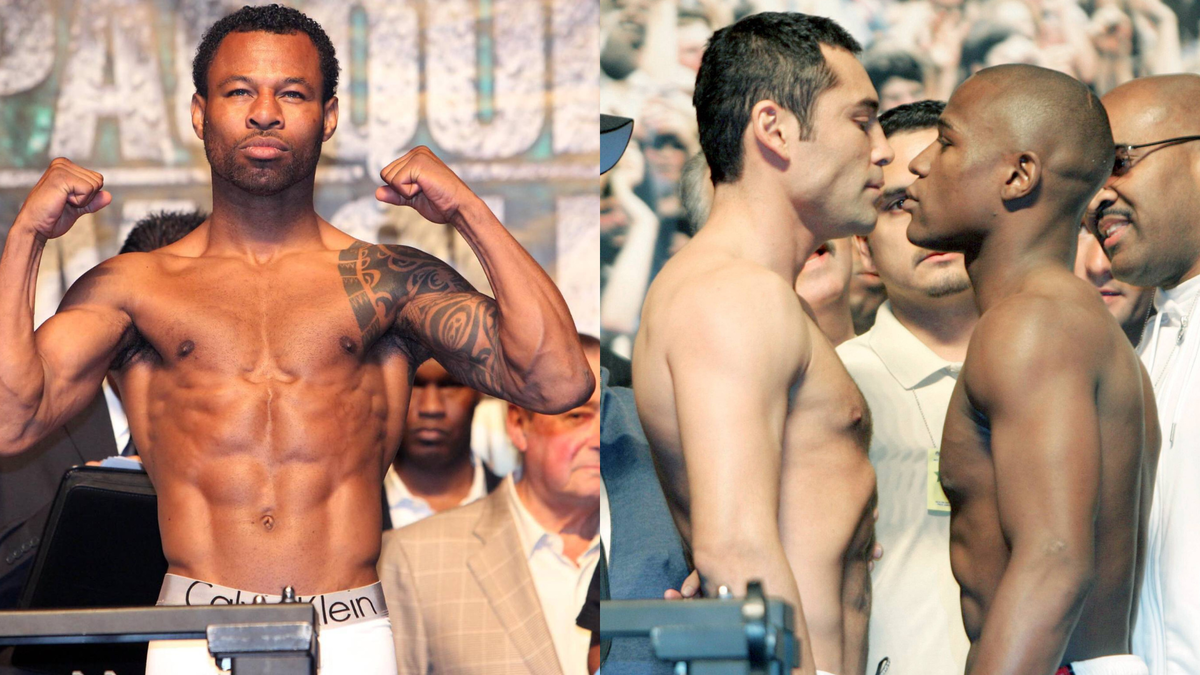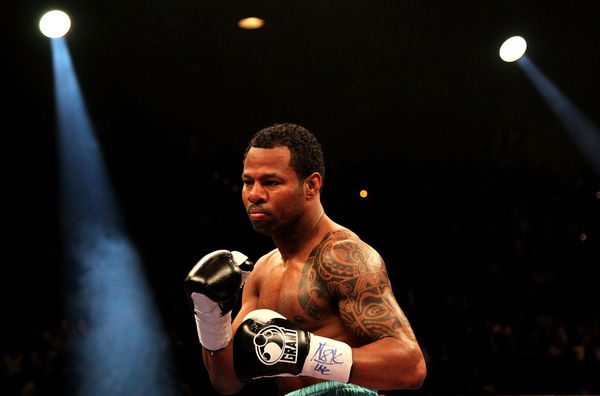
Imago
Image Courtesy – Imago

Imago
Image Courtesy – Imago
The year was 2000 when Shane Mosley crossed paths with Oscar De La Hoya for the first time. ‘Golden Boy’, still in his prime, had suffered just a single upset against Felix Trinidad a year prior. Despite that, he was the most popular and favored boxer going into the HBO pay-per-view headliner in Los Angeles. After the fight began, it quickly became clear that neither had taken the clash lightly. The first fight was close, extremely close, with either fighter taking the lead at various points.
Watch What’s Trending Now!
However, the victory went to Mosley via a split decision. A quick three years later, the duo came face to face again, this time in Las Vegas. The second one went the distance as well, and results remained the same, but this time, Mosley’s win came from a unanimous decision. 21 years have passed since the fights, which saw the boxers earn a combined purse of $29 million. But Mosley seems a bit unhappy with how he got paid despite winning twice. While appearing in one of his YouTube videos today, he explained why!
ADVERTISEMENT
Shane Mosley reveals popularity contest
Speaking about his two fights with Oscar De La Hoya, Mosley said, “The first time I fought him, Oscar got 10, I got 4.5. The second time I fought, I was supposed to get the 10, the second time, right? And then the second time, we fought, he still got 10, and I still got 4.5. So, it’s a popularity contest, so whoever is the more popular is going to get the most money”.

Getty
BEVERLY HILLS, CALIFORNIA – MAY 25: Oscar De La Hoya attends the 11th Annual Sugar Ray Leonard Foundation “Big Fighters, Big Cause” charity boxing night at The Beverly Hilton on May 25, 2022 in Beverly Hills, California. (Photo by Frazer Harrison/Getty Images)
In hindsight, it might seem unfair for Oscar De La Hoya to get paid more even in the second fight. However, the thing is, Oscar had remained the favored one in the second fight as well. Since the first was so competitive, many felt the fight could have gone either way. And as far as the second fight is concerned, there was a huge controversy involved in the final decision.
ADVERTISEMENT
After the fight, a lot of analysts believed De La Hoya had done everything to secure the win, but the scorecard ended up favoring Mosley. This decision sparked a wave of criticism from fans and experts alike. Adding fuel to the fire, fight stats showed De La Hoya had landed more punches overall and seemed to have the fight under control for the most part. So, in a way, Mosley was pretty fortunate because there were accusations flying around about the judges’ competence and potential biases. And believe it or not, that wasn’t even the end of it!
Top Stories
‘Suspended’ Jake Paul Reveals True Extent of Jaw Injury in Bold Canelo Callout

Jake Paul vs. Anthony Joshua Fight Purse: How Much Are Alycia Baumgardner and Others Earning?

“Fans Didn’t Pay to See This”: Jake Paul vs. Anthony Joshua Commentator Erupts Against Referee on Netflix Livestream

Who Are Skye Bishop and Ally Brooke? Relationship Status, Net Worth, & Other details on Jake-Joshua National Anthem Singers

Is Jake Paul Puerto Rican? Nationality, Ethnicity, and Religion

ADVERTISEMENT
A Victim of PED?
Four years later, after their second bout, Oscar De La Hoya had faced defeat against Floyd Mayweather and was nearing the end of his boxing career. At the same time, Shane Mosley was gearing up to fight Miguel Cotto in November. That’s when shocking news surfaced: Mosley was implicated in the BALCO drug scandal, linked to Victor Conte‘s company. You heard that right! Conte had been convicted of distributing performance-enhancing drugs to athletes across different sports, and Mosley was one of those athletes caught up in the controversy. Sounds ugly?

Getty
LAS VEGAS – MAY 01: Shane Mosley looks on against Floyd Mayweather Jr. during the welterweight fight at the MGM Grand Garden Arena on May 1, 2010 in Las Vegas, Nevada. (Photo by Jed Jacobsohn/Getty Images)
Shane received “the cream” and “the clear” from Conte around the same time before the second fight against Oscar. Mosley had agreed he received those PEDs from Conte in front of the grand jury, but also stated he was unaware that these substances were banned while under the assumption that they were mere supplements. This cast a shadow of doubt over his second win over De La Hoya. Did you know that Mosley was never stripped of his belts and neither did he face any major consequences, besides getting a bit of a bad name?
ADVERTISEMENT
The best part was that Shane Mosley seemed to have lady luck on his side. How? Well, not only did he secure victories in those fights, but he also managed to evade grave consequences because the statute of limitations had expired. As for whether he should have been paid more, it’s a very tricky question. To be honest, his earnings from future fights might seem like a small price to pay compared to the controversy surrounding his use of banned substances. However, the compensation fighters receive is typically based on contractual agreements and performance expectations, rather than ethical considerations. It’s a complex issue that touches on both the legal and moral aspects of professional sports. Do you think Mosley should have been paid more?
ADVERTISEMENT
ADVERTISEMENT
ADVERTISEMENT

